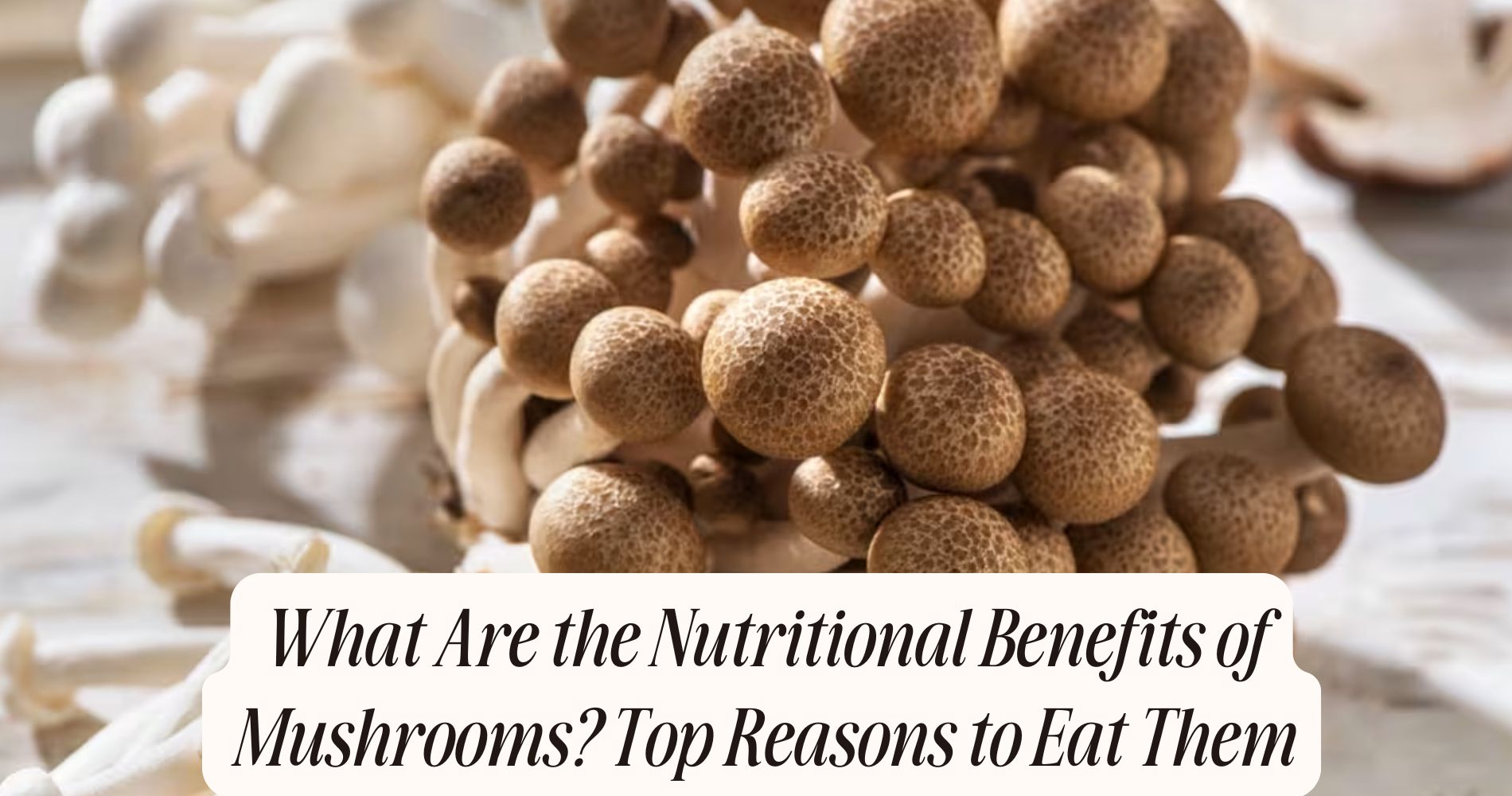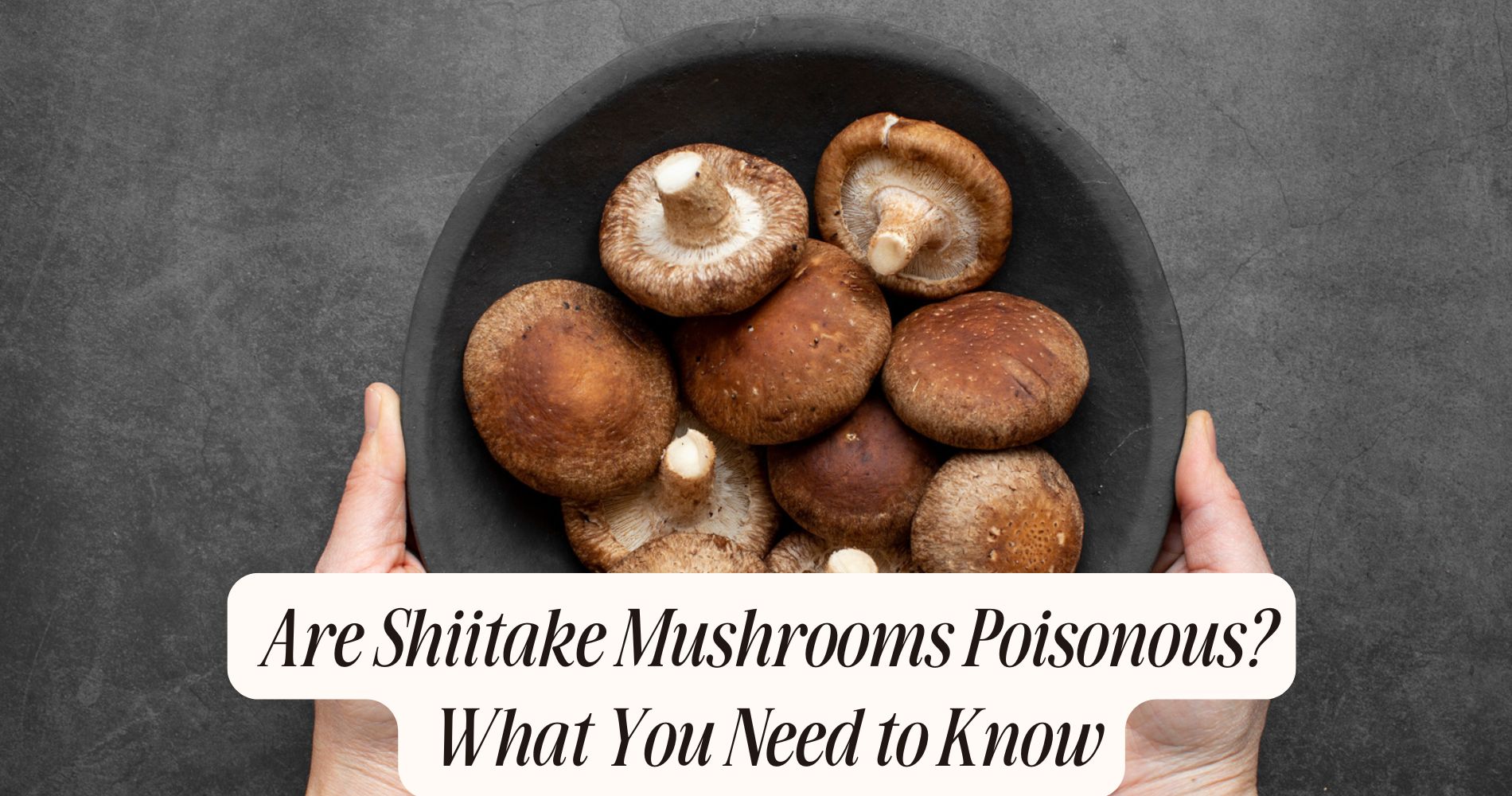
What Are the Nutritional Benefits of Mushrooms? Top Reasons to Eat Them
What are the nutritional benefits of mushrooms? Mushrooms pack a powerful nutritional punch with essential vitamins and minerals like vitamin D, potassium, and copper. They boost your immune function through unique compounds that enhance immune cell activity. Their antioxidants help neutralize free radicals, promoting heart health by lowering cholesterol levels. Plus, they're low in calories, high in fiber, and support weight management. With potential cancer-fighting properties, mushrooms are a versatile addition to your diet. You'll find even more reasons to enjoy them as you explore further.
Rich Source of Vitamins and Minerals
Mushrooms aren't just versatile culinary ingredients; they're also a rich source of essential vitamins and minerals that can enhance your overall health.
One of the standout nutrients found in certain mushrooms is vitamin D. When exposed to sunlight, mushrooms can produce this important vitamin, which supports bone health and immune function.
Additionally, mushrooms boast an impressive mineral content, including selenium, potassium, and copper. Selenium acts as an antioxidant, while potassium helps regulate blood pressure. Copper is significant for red blood cell formation and iron absorption.
Boosting Immune Function
Incorporating mushrooms into your meals not only enhances flavor but also plays a significant role in boosting immune function. These fungi contain unique compounds that can stimulate your immune response.
Research shows that certain fungal compounds, like beta-glucans, enhance the activity of immune cells, helping your body fend off infections. By regularly consuming mushrooms, you may increase the production of beneficial cytokines, which are essential for coordinating your body's immune defense.

Additionally, mushrooms are rich in antioxidants and vitamins, further supporting your immune health. As you enjoy their diverse flavors, you're also giving your immune system a powerful ally against illness.
Antioxidant Properties
While you may not often think about fungi as a source of antioxidants, they actually boast impressive levels of these beneficial compounds. Different mushroom varieties, such as shiitake, maitake, and reishi, are particularly rich in antioxidant compounds like ergothioneine and glutathione.
These antioxidants play a vital role in neutralizing free radicals, which can otherwise lead to cellular damage and inflammation. Incorporating mushrooms into your diet not only enhances flavor but also contributes to your overall health by combating oxidative stress.
Research suggests that consuming mushrooms regularly may lower the risk of chronic diseases linked to oxidative damage. By including diverse mushroom varieties in your meals, you'll reap the benefits of their potent antioxidant properties while enjoying a delicious, nutritious food source.
Promoting Heart Health
When you think about heart-healthy foods, mushrooms mightn't immediately come to mind, but they offer several benefits that can support cardiovascular health.
Research suggests that incorporating mushrooms into your diet can contribute to cholesterol reduction, which is essential for maintaining a healthy heart. They contain compounds like beta-glucans and ergothioneine that help lower LDL cholesterol levels while promoting overall heart function.

Additionally, mushrooms are low in sodium and high in potassium, making them effective for managing blood pressure.
By including mushrooms in your meals, you're not just enhancing flavor; you're also taking proactive steps toward better heart health.
Supporting Weight Management
Mushrooms can be a valuable ally in your weight management journey, thanks to their low calorie count and high fiber content. By incorporating mushrooms into your meals, you can enhance your caloric balance, allowing you to enjoy satisfying portions without consuming excess calories.
Their fiber helps promote appetite control, keeping you feeling full longer and reducing the likelihood of overeating. Research shows that a higher fiber intake is linked to better weight management outcomes.
Additionally, mushrooms are nutrient-dense, providing essential vitamins and minerals while remaining light on calories. By replacing higher-calorie ingredients with mushrooms, you can create healthier dishes that support your weight goals.
Making mushrooms a staple in your diet can help you achieve and maintain a healthy weight effectively.
Enhancing Digestive Health
Incorporating mushrooms into your diet not only aids in weight management but also plays a significant role in enhancing digestive health.
Mushrooms are rich in prebiotic fiber, which is essential for nurturing your gut microbiome. This fiber serves as food for beneficial gut bacteria, promoting a balanced microbiome that's vital for digestion and overall health. A well-functioning gut microbiome can improve nutrient absorption, reduce bloating, and enhance regularity.
Furthermore, certain compounds in mushrooms, like beta-glucans, further support gut health by potentially lowering inflammation.
Potential Cancer-Fighting Properties
While many foods boast health benefits, mushrooms stand out for their potential cancer-fighting properties. Research indicates that certain mushroom compounds, such as polysaccharides and triterpenes, may inhibit tumor growth and enhance immune function.
For instance, studies have shown that polysaccharide-K (PSK), derived from turkey tail mushrooms, can improve survival rates in cancer patients when used alongside conventional treatments. Additionally, compounds found in shiitake and reishi mushrooms exhibit anti-inflammatory effects, which can further contribute to reducing cancer risk.

Cancer research continues to explore how these mushroom compounds can support overall health and potentially serve as complementary therapies. Including mushrooms in your diet could be a tasty and proactive step towards harnessing these promising benefits.
Low-Calorie and Versatile Ingredient
When it comes to healthy eating, mushrooms offer a low-calorie option that doesn't compromise on flavor or versatility. With only about 15 calories per cup, they fit seamlessly into any meal prep plan.
Their unique umami taste enhances various dishes, making them a favorite in many culinary uses, from stir-fries to soups. You can easily incorporate mushrooms into salads, pasta, or grain bowls, adding not just depth of flavor but also texture.
Plus, their ability to absorb flavors means they can take on the essence of the dishes you create. Whether you're sautéing, grilling, or roasting, mushrooms can elevate your meals while keeping calorie counts in check, making them an ideal ingredient for health-conscious eaters.
Source of Plant-Based Protein
Mushrooms serve as an excellent source of plant-based protein, making them a valuable addition to any diet, especially for those looking to reduce their meat consumption.
When you explore different mushroom varieties, you'll find that they offer varying protein content. For instance, shiitake mushrooms provide about 2.2 grams of protein per 100 grams, while portobello mushrooms contain around 2.5 grams.
In a protein comparison with other plant sources, mushrooms stand out not only for their protein content but also for their essential amino acids, which are crucial for muscle repair and growth.
Incorporating these fungi into meals can help you achieve your protein requirements while enjoying their unique flavors and textures.
Promoting Healthy Skin and Hair
Incorporating mushrooms into your diet can markedly enhance the health of your skin and hair, thanks to their rich nutrient profile. These fungi are packed with antioxidants, which combat oxidative stress and promote skin hydration, helping to maintain a youthful appearance.
Additionally, mushrooms contain B vitamins, particularly riboflavin and niacin, that support cellular turnover and improve skin texture.
When it comes to hair strength, mushrooms are a fantastic source of minerals like selenium and copper. Selenium helps prevent hair loss, while copper supports melanin production, enhancing your hair's natural color.
Experience the Power of 10 Mushrooms with SUPER MUSHROOM GUMMIES
Want an effortless way to enjoy the incredible nutritional benefits of mushrooms? Try SUPER MUSHROOM GUMMIES from Well Gummies! Packed with 10 functional mushrooms, these convenient, chewable gummies naturally boost energy, sharpen focus, and support immune health—all in a delicious wild berry flavor. No jitters, no crash, just clean, sustained energy to keep you at your best all day. Fuel your body and mind with nature’s best—grab your Well Gummies today!
Frequently Asked Questions
Can Mushrooms Be Consumed Raw, or Should They Always Be Cooked?
You can consume mushrooms raw, but cooking enhances their health benefits by improving nutrient absorption and reducing potential toxins. If you prefer raw consumption, choose safe varieties and wash them thoroughly to minimize risks.
Are There Any Mushrooms That Should Be Avoided Due to Toxicity?
Yes, some toxic mushrooms can cause serious health issues. It's essential you identify them for safe consumption. Always research or consult experts before foraging, as species like Amanita muscaria and Galerina marginata are especially dangerous.
How Can Mushrooms Be Incorporated Into Various Diets?
You can easily incorporate mushrooms into various diets by exploring diverse mushroom recipes. They fit well with many dietary restrictions, enhancing flavor and nutrition in dishes like stir-fries, salads, and soups without compromising health goals.
What Are the Best Types of Mushrooms for Nutritional Benefits?
For nutritional benefits, consider shiitake for its immune-boosting properties and portobello for its rich fiber content. Both types enhance your meals while providing essential nutrients that support your overall health and well-being.
Do Mushrooms Contain Any Allergens or Cause Adverse Reactions?
Mushrooms can cause allergic reactions in some individuals, leading to symptoms like itching or swelling. You should be cautious if you've experienced mushroom allergies in the past, as adverse reactions can vary considerably among different species.
Conclusion
Incorporating mushrooms into your diet offers numerous health benefits, from boosting your immune system to supporting heart health. With their rich array of vitamins, minerals, and antioxidants, mushrooms can enhance your overall well-being while also aiding in weight management. Their low-calorie nature and versatility make them an excellent addition to various dishes. By adding mushrooms to your meals, you're not just enjoying a delicious ingredient; you're also investing in your health and wellness.




